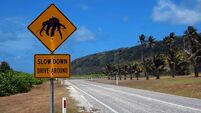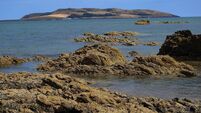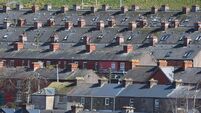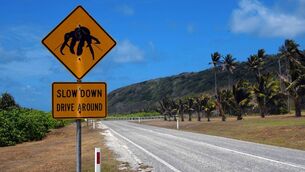Pope Francis's powerful call to ecological action
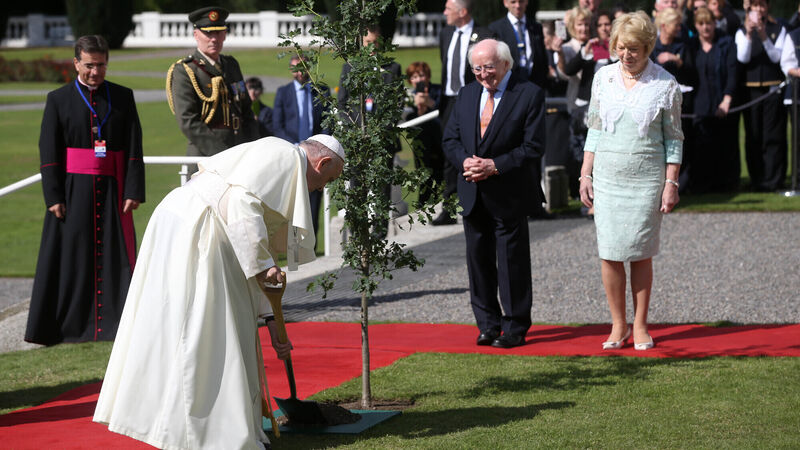
Pope France at Áras an Uachtaráin with President Michael D Higgins and Sabina Higgins in 2018 where he planted an Irish oak tree. Picture: Sam Boal/RollingNews.ie
Values of a society shift and adjust through time. The evolution of cultural perspectives is shaped by major institutions, by scholars, rebels and civil society movements. Pope Francis has been a leader who did much to evolve the values of our society, pushing towards an eco-centric outlook in which care for all people and care for all of creation are invited back in to the core of our shared cultural values.
I myself am not, and never have been, a religious person. However, I remember being intrigued when, in 2015, Laudato Si’ was published. In this eloquent, philosophical and comprehensive encyclical, Pope Francis wrote with fluency about the ways in which our consumer obsessed culture has been driving Earth’s planetary systems toward collapse. ‘Laudato Si’ — Encyclical letter of the holy father Francis on care for our common home’ is a powerful call for a global ecological ‘conversion’, for new ways of living that take responsibility for the health and wellbeing of all creatures, as well as for the most vulnerable people on the planet.




